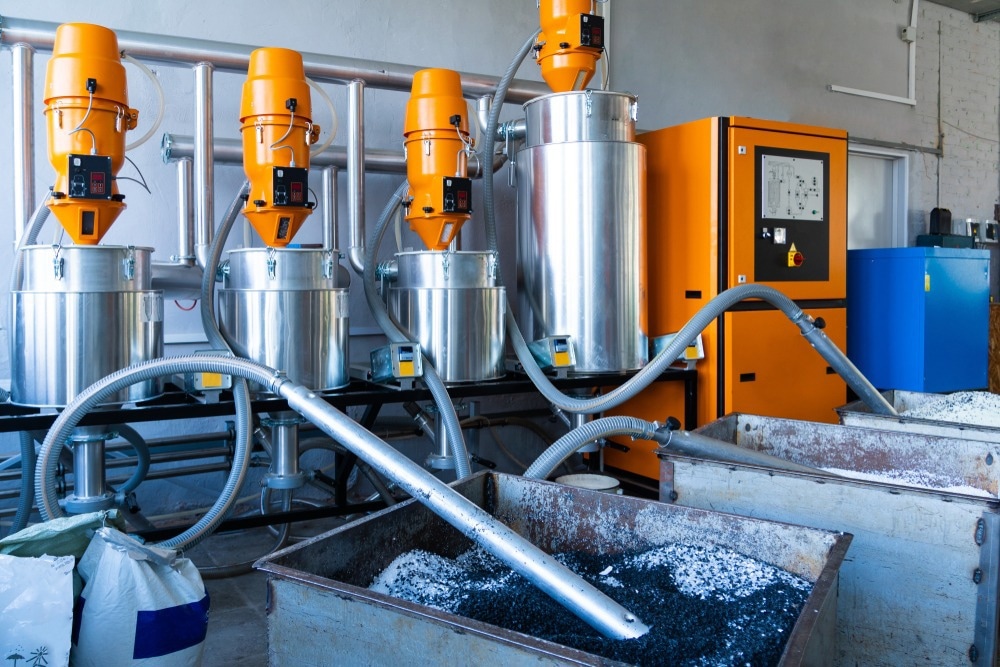A recent article published in the Journal of Materials Science: Materials in Engineering explored the response of expanded thermoplastic polyurethane (ETPU) to temperature and compression at various temperatures. Dynamic mechanical thermal analysis (DMTA) was performed to understand the influence of temperature on small deformations.

Image Credit: Yasni/Shutterstock.com
Background
ETPU has gained popularity due to its use as the midsole material in Adidas Boost shoes. It is easy to process and offers excellent elasticity under high deformation. Bead foams produced from ETPU are assembled into the final product.
The mechanical properties of these foams are influenced by the base material’s cellular structure and foam density and vary with temperature, exhibiting the temperature-dependent properties of the polymer. However, the temperature-dependent behavior of ETPU has been barely explored.
Higher saturation temperatures during ETPU autoclaving enhance expansion, while high-pressure results in smaller cells. Alternatively, high temperature and pressure create larger cells. The thermoplastic polyurethane (TPU) composition and its temperature-dependent mechanical behavior also affect foaming.
Thus, the researchers used three-dimensional (3D) strain mapping to analyze deformation behavior on a commercially available ETPU, performing quasi-static tests at varying densities. Compression properties of ETPU were studied over a broad temperature range of -50 to 120 °C.
Methods
Commercial ETPU expanded beads were welded to 290×190×40 mm3 plates using a steam chest molding machine. The crack distance during mold filling was varied to produce three density ranges. Subsequently, circular samples of 20 and 40 mm diameters were cut from the plates precisely.
The morphology of 10 ETPU expanded beads was examined using a scanning electron microscope (SEM). Their mean cell diameter was determined using ImageJ software. Additionally, the density of 100 beads was estimated using Archimedes’ principle. The ETPU samples were conditioned in the laboratory for at least 144 hours before determining mass and volume.
3D-strain maps were generated at three deformation levels, 2-5 %, 30-35 %, and 55-60 %, to examine the ETPU deformation behavior using edge-illumination (EI) phase contrast imaging. Strain retrieval was also performed using commercial digital volume correlation (DVC) software. A computed tomography (CT) reconstruction was then conducted, from which the average strain was calculated for each ETPU cell.
Apart from classifying the ETPU foam samples as soft” or “hard” based on glass transition temperature, mechanical loading tests were performed at temperatures varying from -50 to 120 °C. At least three samples were tested for each density and temperature (72 samples). Additionally, unloading was performed at the same testing speeds to assess the recovery effect.
Results and Discussion
DMTA measurements demonstrated the temperature-dependent behavior of ETPU at different densities. Their stiffness dropped significantly at the glass transition temperature (approximately -25 °C), remaining almost constant till 80 °C before further reducing.
In-situ CT measurements and 3D strain mapping exhibited the changing cellular structure according to the compression level. Initially, the deformation was concentrated at the bead borders, becoming more uniform across the walls with increasing compression. The plot between equivalent strain and sphere radius confirmed the greater deformation of smaller cells than the larger cells.
The deformation of the cells around the bead fusion boundaries became highly pronounced at the 30-35 % compression level and revealed the multiscale structure. Conversely, a uniform deformation was observed throughout the sample at 55-60 % compression. Thus, the mechanical properties of ETPU could be tailored by modifying its cellular structure.
ETPU generally experiences greater deformations in practical applications than observed in DMTA tests. Consequently, temperature influence on ETPU was investigated for up to 75 % deformations in quasi-static compression tests. A gradual decrease in compression modulus, elastic stress, and energy absorption was observed from -20 to 60 °C. However, the high-density samples exhibited greater compression modulus, elastic stress, and energy absorption.
The recovery of ETPU from compression at -50 to 60 °C temperatures was impressive. After 72 hours at room temperature, it exhibited minimal residual deformation. Moreover, strength and flexibility remained unaffected during subsequent compression tests at room temperature. Overall, ETPU resiliently maintained its mechanical properties even after being 75 % compressed.
Conclusion
The researchers comprehensively examined the temperature influence on the compression behavior of ETPU across a wide temperature range (-50 to 120 °C). The observed mechanical performance of ETPU under various thermal conditions demonstrated its high versatility and resilience.
ETPU demonstrated robust recovery after 75 % compression, particularly in the -50 to 60 °C temperature range. The compression properties in subsequent compression tests were consistent or even slightly better. For instance, a 10 % enhancement in energy absorption was observed for samples previously tested at -40 °C, indicating ETPU’s robustness against prior exposure to different temperatures.
The researchers suggest exploring ETPU’s long-term durability against cyclic dynamic loading at high deformations at varying temperatures. This will provide greater insights into ETPU’s mechanical behavior for innovative applications.
Journal Reference
Meuchelböck, J., Peiffer, C., Walter, L., Dippold, M., Munro, P., Ruckdäschel, H. (2024). Influence of temperature on the compression properties of expanded thermoplastic polyurethane (ETPU). Journal of Materials Science: Materials in Engineering. DOI: 10.1186/s40712-024-00149-
Disclaimer: The views expressed here are those of the author expressed in their private capacity and do not necessarily represent the views of AZoM.com Limited T/A AZoNetwork the owner and operator of this website. This disclaimer forms part of the Terms and conditions of use of this website.